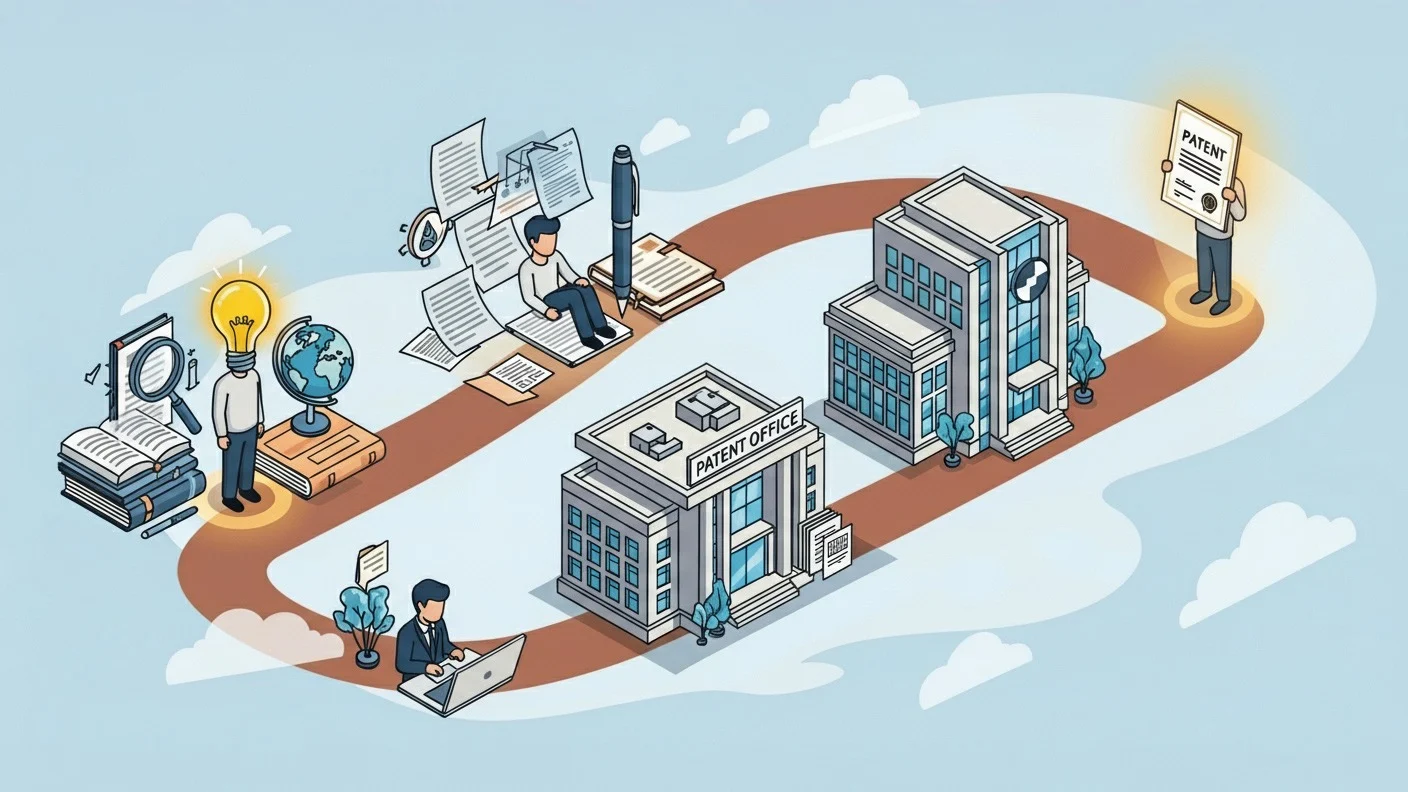
Credit: Image created by Cure, Google Gemini
Overview
Intellectual property (IP) is often a startup’s most valuable asset. Patent litigator Anthony J. Fitzpatrick of Duane Morris LLP shares what healthcare entrepreneurs need to know about patents, trade secrets, and copyrights, plus common costly mistakes to avoid.
Patents, trade secrets, and copyrights founders should know
For life science and healthcare entrepreneurs, intellectual property (IP) can make or break a company’s value. Whether you’re developing a drug, biologic, device, or digital health tool, protecting your innovation is essential to ensuring it stays yours.
To demystify the process, Cure spoke with Anthony J. Fitzpatrick, Chair of the Patent Litigation Division at Duane Morris LLP. He explained the fundamentals of patents, trade secrets, and copyrights, highlighted the most common mistakes he sees entrepreneurs make, and outlined when to bring in a patent attorney to safeguard your startup’s IP.
This conversation has been edited for length and clarity.
What’s the difference between intellectual property (IP) and patents?
Intellectual property is a broad category that includes patents, trade secrets, copyrights, and trademarks. Patents are just one type of IP. A patent is essentially a bargain between an inventor and the U.S. government.
To get a patent, you have to disclose how to make and use your invention in a detailed technical document. If the patent is granted, you receive the right to exclude others from using that invention for 20 years from the filing date.
What kinds of things can be patented?
Patents can cover devices, drugs, biologics, methods of treatment, and medical technologies. To be patentable, the invention must involve something new, useful, and beyond just a discovery of nature.
The invention can’t cover purely abstract ideas or natural phenomena. In the healthcare, this is relevant to things like diagnostic tools or facts about the body. For example, simply discovering that a biomarker in the blood indicates a disease is not patentable because it’s a natural phenomenon.
Can AI developments be patented?
Not if they are purely abstract. For example, taking a manual task and computerizing it is not enough for a patent.
But if the invention has a specific, practical application tied to technology, it may be patentable. This is a complex area where an experienced patent attorney can help structure the claims properly.
How do patents differ from trade secrets?
A trade secret protects valuable information by keeping it confidential. Companies often use trade secrets to protect manufacturing processes, formulas, or methods that they don’t want competitors to see. Think of the recipe for Coca-Cola.
In biotech, if you created a manufacturing method to make a biologic that involves running a certain process for a certain length of time, at a certain temperature, you wouldn’t patent the process, but you might want to keep it as a trade secret.
Unlike patents, which require public disclosure and expire after 20 years, trade secrets can last indefinitely as long as they remain secret and valuable.
How do copyrights fit into IP?
Copyright protects creative expression such as books, paintings, movies, and software. In healthcare, this often applies to software and computer-enabled technologies. While software inventions can sometimes be patented, copyright protection automatically applies to the code itself as an expressive work.
Are there different patents for drugs, devices, and software?
Yes. However, they’re all subject to the same overarching rules, including the 20-year term for the life of the patent.
How much do patents cost?
It varies, but generally, the more complicated the invention, the more expensive a patent is going to cost.
Biotech-related patents, which require lengthy and highly technical disclosures, tend to be more expensive. Computer-enabled related patents are also complex. Even seemingly straightforward medical devices can be costly if the disclosure is detailed.
What about costs for trade secrets?
Costs around trade secrets involve having the appropriate controls to keep the information secret, such as making sure you have appropriate agreements with everybody who has access to your trade secret.
So, trade secrets don’t necessarily have as much an upfront costs as patents, but they have a running cost to make sure that you’re doing what you need to do in order to maintain secrecy.
What’s a common mistake companies make with IP?
Failing to secure ownership early. Disputes often arise when founders or collaborators don’t formally assign their IP rights to the company, or when a startup doesn’t obtain proper licenses from a university or research institution. These issues can derail a business years later if not addressed from the beginning.
When should an entrepreneur bring in a patent attorney?
Early. For life science and healthcare startups, IP is often a big part of the value of their business. An attorney can help determine what should be patented versus kept as a trade secret, ensure the IP is properly owned, especially if it originates in a university setting, and prevent accidental disclosures, such as publishing an invention in a journal or at a conference in a way that’s going to hamper your ability to protect it as your IP. Securing ownership and licensing rights up front avoids major disputes later.








